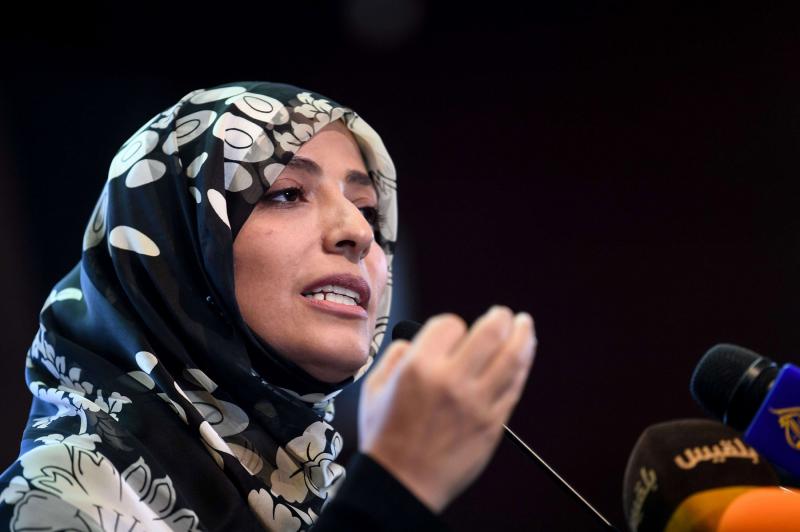Yemeni Islamist activist and Nobel Peace Prize laureate Tawakkol Karman argues that the sidelining of Tunisia’s Islamist party Ennahda compared to the Taliban’s rise to power in Afghanistan illustrates the West’s dislike for democracy in the Middle East and is likely to encourage Islamists to tread the violent path.
“Observe the ill-timing: at the time that Afghanistan was handed over to Taliban, there was a coup against democracy in Tunisia so as to exclude Ennahda,” she wrote in a Facebook post.
She was alluding to Tunisian President Kais Saied’s decision of July 25, to suspend the Ennahda-dominated parliament and dismiss the prime minister based on emergency powers conferred on him by the constitution.
Karman alleges that the concomitance of the two developments, in Tunisia and Afghanistan, will encourage Islamist organisations to follow the path of violent extremism instead of political participation.
“The truth is that many Islamist movements will regret having followed Ennahda’s path and not that of the Taliban! Unfortunately this is the worst lesson to draw at all.”
Tunisian commentators have rejected her linking of the two disparate situations as an encouragement to radical violence and as an attempt to ignore the many failures of Ennahda in government in recent years, which led the Tunisian state to the brink of collapse and triggered popular hostility towards Islamists. Eventually, the intractable political impasse, rampant corruption and virtual economic bankruptcy of the country, made worse by Ennada’s role in Tunisian politics, motivated President Kais Saied’s decisions of July 25.
Ennahda today faces a judiciary investigation over illegal election financing and foreign lobbying. Leftist activists have also accused the Islamist party of running a clandestine apparatus with connection to 2013 assassination of secularist leaders. Ennahda has vehemently denied the accusations.
“The West does not want democratic regimes or civilian states in the Middle East. Because of that it has conspired and blessed conspiracies against our Arab Spring and against our peaceful revolutions,” claimed Karman.

She added that, “Militias and despotic fascism in our region are what America wants,” asserting that Yemen’s Houthis and Afghanistan’s Taliban “are two faces of the same coin that is endeared to the West.”
Tawkkol Karman is no stranger to controversy. When she won the 2011 Nobel Peace prize for her “role in Arab spring protests,” the Muslim Brotherhood’s website, Ikhwanweb, released a statement on Twitter identifying her as a “Yemeni Muslim Brotherhood member,” sparking widespread speculation and criticism about her connection to the group.
Despite minor disagreements about alliances in Yemen’s war, Karman has been considered a leading figure of Yemen’s Islah Party, a Muslim Brotherhood affiliate.
Yemeni writer Saleh al-Baidhani said, “Karman grew up in an area in Taiz governorate, where many members of the Muslim Brotherhood in Yemen originated. Her home atmosphere must have been dominated by radical ideas and tendencies, as her father Abdel-Salam Karman, was a leading Brotherhood figure and founder of the Yemeni Rally for Reform Party.”
” In 2005, she co-founded her first human rights organisation, called “Women Journalists Without Chains,” which incorporated radical Islamist overtones and slogans inspired by prison chants of jailed jihadist elements of the 1970s and 1980s,” he added.
Because of her Muslim Brotherhood connections, there was also an uproar last year when the Yemeni Nobel Prize winner was named among Facebook’s first 20 oversight board members.
Karman has repeatedly defended the Muslim Brotherhood, even describing the group as “one of the victims of official tyranny and terrorism in the region, (to) which Trump gives his supports and assistance.” She has said she believes the movement’s role in the region will “necessarily” grow in the future.
Source: Arab Weekly
***Show us some LOVE by sharing it!***



